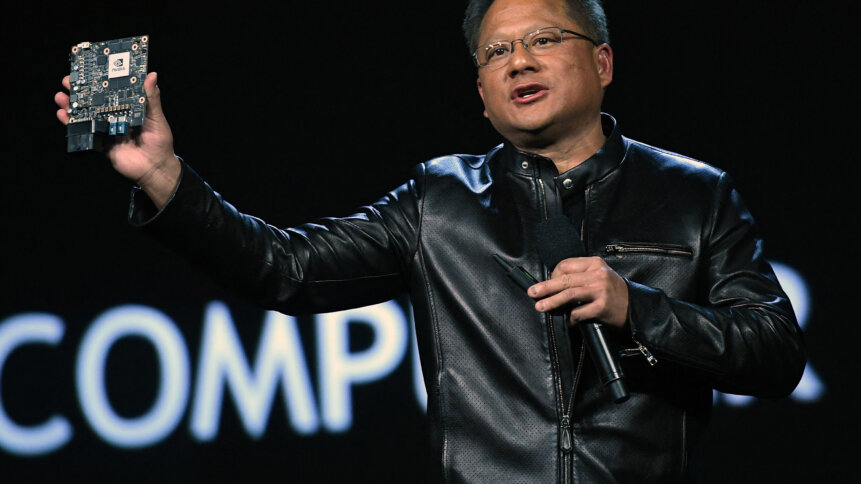Nvidia and Chinese chip designers outfox the US chip ban

- The Nvidia A800 graphic processing unit is basically an alternative to the Nvidia A100 GPU for customers in China.
- Since Nvidia reported that the US ban could affect as much as US$400 million in potential sales to China in the third quarter, the new chip appears as an attempt to remedy the financial loss.
- In China, Alibaba and start-up Biren Technology are said to be tweaking their most advanced chip designs to reduce processing speeds and avoid US-imposed sanctions.
On September 1 this year, the US gaming and computer graphics giant Nvidia Corp was instructed by the US government to stop exports of its A100 and H100 chips to China. The two products are Nvidia’s fastest chips and are used in data centers to speed up artificial intelligence tasks such as natural language processing. Even then, founder and CEO Jensen Huang Jen-hsun explained that the ban, meant to stall the advancement of China in related fields, is not a hindrance for Nvidia as China continues to present a significant growth opportunity for the company.
At a news conference in early September, Huang highlighted how the restrictions disclosed earlier that month have specific thresholds for both the performance of a chip as well as the processor’s ability to connect other chips. He noted that the rules leave “a large space for us” in the Chinese market and that “the vast majority of our customers are not affected by the specification.”
Just two months into the ban, the American semiconductor design giant unveiled a substitute with a reduced processing speed for its second-largest market. In a statement to TechCrunch, Nvidia said the Nvidia A800 graphic processing unit is “another alternative product to the Nvidia A100 GPU for customers in China. The A800 meets the US government’s clear test for reduced export control and cannot be programmed to exceed it,” the company added.
The new chip was first reported by Reuters on Monday. The chip also represents the first reported effort by a US semiconductor company to create advanced processors for China that follow the latest US trade rules.
Washington’s move forms part of a broader range of efforts by the US to limit China’s access to advanced chips and other technologies. The latest ban sent shockwaves across the Chinese tech industry, as products made by domestic companies are currently incapable of replacing Nvidia’s best graphics processing units (GPUs).
As it is, Nvidia GPUs account for 95% of general-purpose GPUs in AI training systems, Lu Jianping, chief technology officer at Iluvatar Corex’s (Nvidia’s chief Chinese rival) told the South China Morning Post.
By early October, fresh US regulations were set, effectively banning the export of advanced microchips and equipment to produce advanced chips by Chinese chipmakers, part of an effort to hobble China’s semiconductor industry and in turn the military. Nvidia previously reported that the US ban could affect as much as US$400 million in potential sales to China in the third quarter, so the new chip seems to be an attempt to remedy the financial loss. The A800 GPU went into production in Q3, according to Nvidia’s spokesperson.
Chinese chip designers dodging the US ban too
Reports have indicated that Alibaba and start-up Biren Technology, which had already conducted expensive test runs of their latest chips at TSMC when Washington unveiled the controls, are tweaking their most advanced chip designs to reduce processing speeds and avoid US-imposed sanctions.
According to six people briefed on the situation, the rules have forced the companies to halt further production and make changes to their designs. “Alibaba, Biren and other Chinese design houses have spent years and millions of dollars creating the blueprints for advanced processors to power the country’s next generation of supercomputers, artificial intelligence algorithms and data centers. These are produced offshore by the world’s biggest contract chipmaker Taiwan Semiconductor Manufacturing,” a report by The Financial Times stated.
Whether the US bans and restrictions will have the desired result of slowing down China’s semiconductor growth while boosting domestic US production and making the Biden-Harris administration seem strong on American jobs and productivity remains to be seen.









